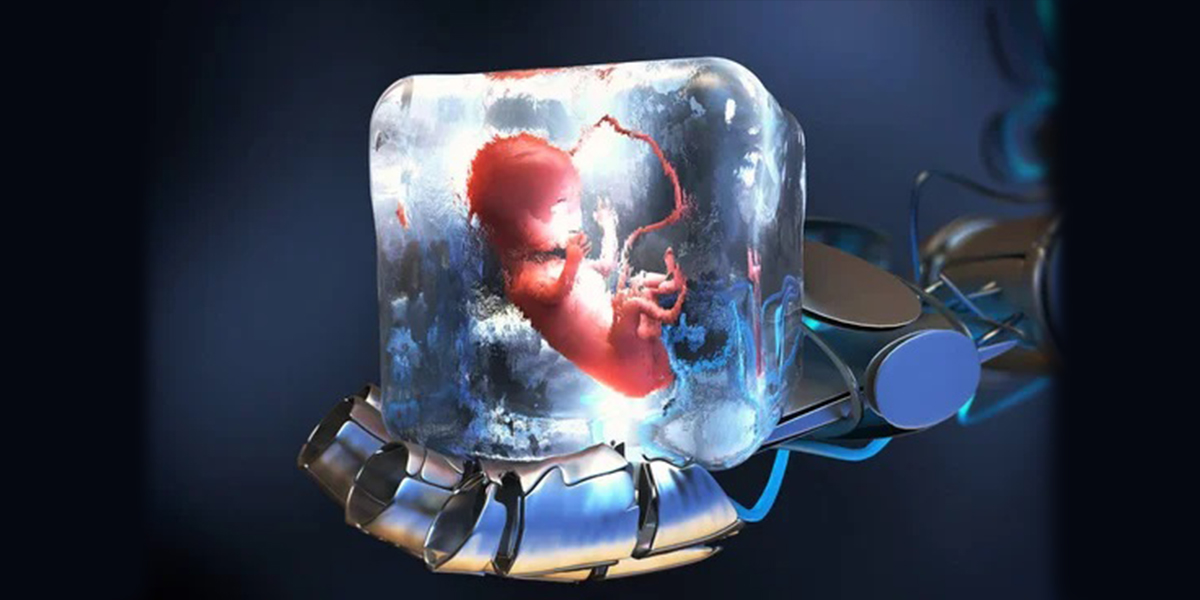How Do Frozen Embryos Stay Alive?

We all have seen the concept of embryos in the movies like,” I Am Mother, Yashodhara, Embryo & the Amazing Spider Man. Frozen Embryos concept always comes up with the surprise. Like, “how can an embryo stay alive & with the help of science, it develops into a human being?”
In the movies, the concept is not shown properly. But today, Blog with Trends has come up with end your curiosity to answer,” How do Frozen Embryos stay alive?”
Before jumping into a conclusion, let’s know the following:
Quick Insights into Frozen Embryos:-
Frozen Embryos are the process of removing eggs from the ovaries. Then they are fertilized to create embryos, allowed to grow for several days & then frozen them.
- Then after, the fertilized eggs are taken to implant in the patient or another person.
- There is no doubt that the first successful procedure took place in the late 1980s.
What are Embryos?
Embryos are crucial for the continuation of a species as they develop into fully formed individuals. The study of embryology, also known as developmental biology. This focuses on understanding the processes and mechanisms involved in embryo development, including cell differentiation, pattern formation, and organogenesis.
Embryos are early developmental stages of multicellular organisms. In the context of human biology, an embryo refers to the stage of human development from fertilization (the fusion of sperm and egg) until about eight weeks of gestation. During this period, the developing human is called an embryo. After eight weeks, it is considered a fetus.
Main thing is that embryos undergo a series of complex processes, including cell division, differentiation, and the formation of tissues and organs. During this time, the embryo develops from a single fertilized cell, known as a zygote, into a multicellular organism with recognizable structures.
In humans, the embryo goes through different stages, such as the morula stage (a solid ball of cells), the blastocyst stage (a hollow ball of cells with an inner cell mass), and the gastrula stage (formation of three primary germ layers: ectoderm, mesoderm, and endoderm). These germ layers eventually give rise to different tissues and organs in the body.
Understand Quickly the Procedure of the Embryo Freezing Process
- Stimulation of egg production
- Egg retrieval
- Fertilization
- Embryo development
- Thawing & Transfer
Know the Procedures for Storing Frozen Embryos
Here is how the procedure of storing frozen embryos is carried out by the doctors:-
Step No: 1
Frozen embryos can be preserved through a process called cryopreservation, which involves freezing them at very low temperatures. This technique allows Frozen Embryos to be stored for extended periods without significant damage to their viability.
Step No:2
During cryopreservation, embryos are typically treated with cryoprotectants, which are substances that help protect the cells from freezing-induced damage. These cryoprotectants prevent the formation of ice crystals that can harm the delicate structures of the embryo.
Step No:3-
The embryos are then slowly cooled to a very low temperature, usually around -196 degrees Celsius (-321 degrees Fahrenheit), using a method called vitrification. Vitrification involves the rapid cooling of the embryos in a highly concentrated cryoprotectant solution, which solidifies into a glass-like state without the formation of ice crystals.
Step No: 4-
Once the embryos reach such low temperatures, they are transferred to specialized storage containers, usually in liquid nitrogen, to maintain a stable frozen state. At these temperatures, almost all cellular activity ceases, effectively putting the embryos in a state of suspended animation.
Step No:5-
The frozen embryos can remain in cryopreservation for years, even decades, and still retain their viability when properly thawed. When a person or couple decides to use their frozen embryos for reproduction, the embryos are carefully thawed, the cryoprotectants are removed, and the embryos are transferred to a suitable environment, such as a woman’s uterus, where they can resume their development.
Reasons, “Why People Choose to Freeze Their Eggs?”
Here are some prominent reasons why people or you can choose to freeze their eggs:-
1. Eggs for the Future
If you wish to have the option of using your Frozen Embryos embryos in the future instead of undergoing another fresh IVF or ICSI cycle, you should be given the opportunity to have suitable embryos frozen for later use.
2. When There is Excessive Response to Fertility Eggs
In cases where your treatment has to be canceled after egg collection, such as due to an excessive response to fertility drugs, it is recommended that any viable embryos be frozen for potential future use.
3. When You are Facing Medical Conditions
If you have a medical condition or need to undergo medical treatment that could potentially affect your fertility, it may be advisable to preserve your fertility by storing eggs, embryos, or a combination of both.
4. When There is the Risk of Injury or Death
If you are facing a situation where there is a risk of injury or death, such as being a member of the Armed Forces being deployed to a war zone, you may choose to create and freeze embryos with your partner as a means of preserving your fertility.
5. In case of Gender Change or When You are Transgender
For individuals assigned female at birth who are transitioning to male, it may be important to consider preserving fertility before starting hormone therapy or undergoing reconstructive surgery. Both of these treatments can potentially lead to partial or complete loss of fertility.
What is the Success Rate of Frozen Embryos Lead to Pregnancy?
You may be curious to know, “What are the chances of Frozen Embryos converting into proper living humans?”
The success of embryo freezing in achieving pregnancy is influenced by the age of the individual when the embryos are created. Higher success rates are observed in procedures where eggs are harvested from individuals aged 35 or younger. It is worth noting that over 95% of frozen embryos typically survive the thawing process.


